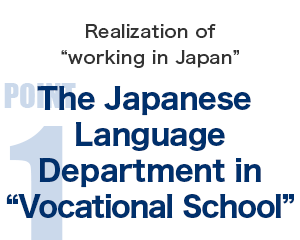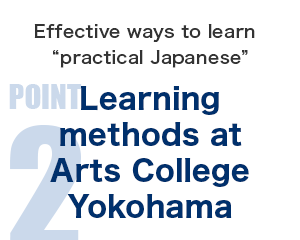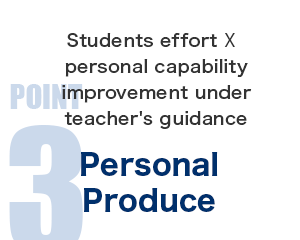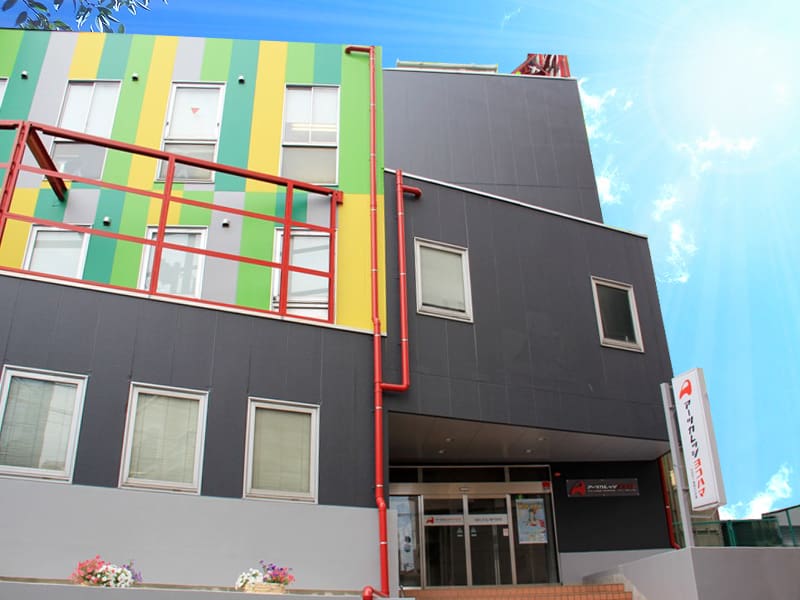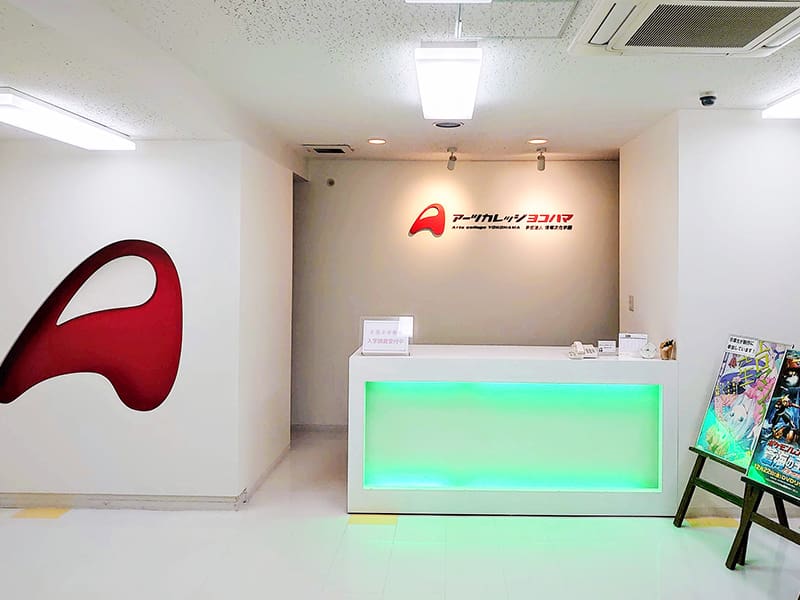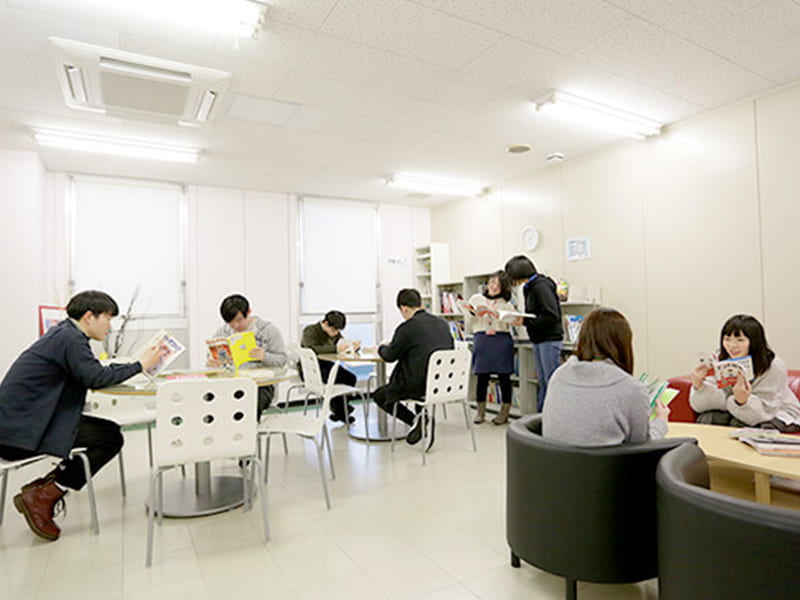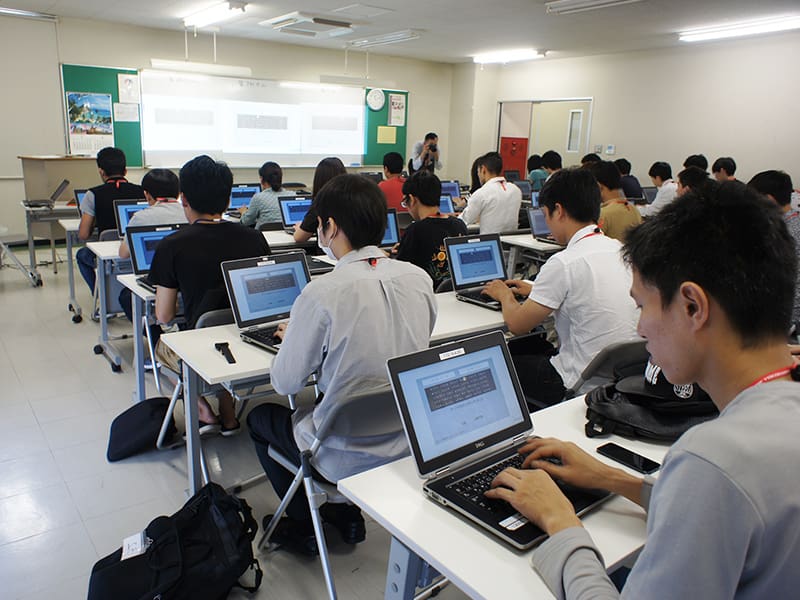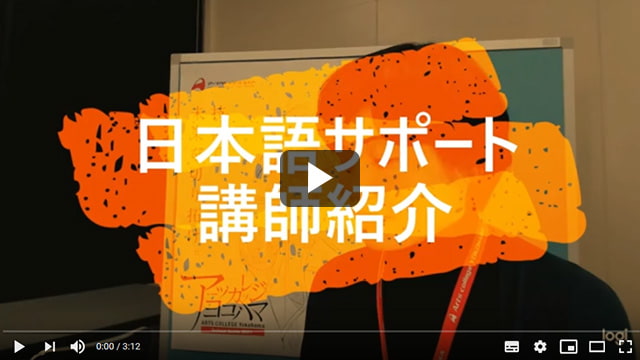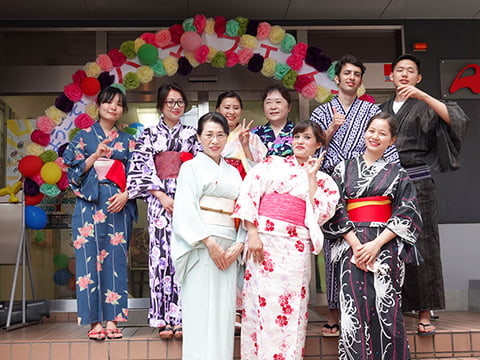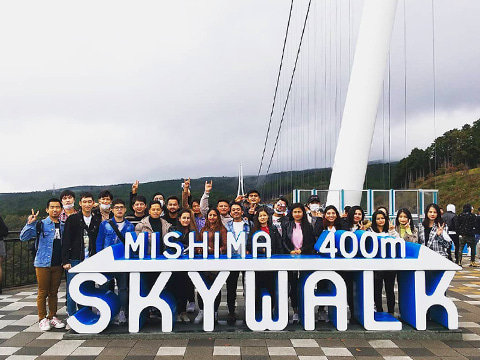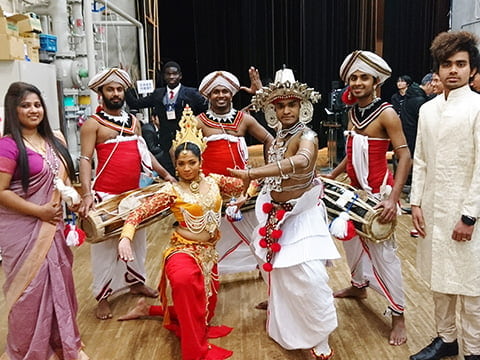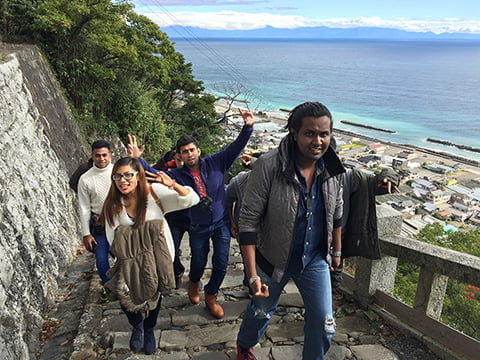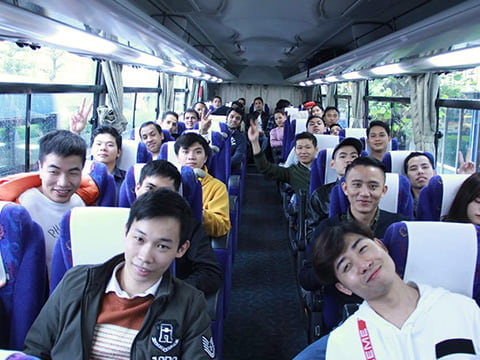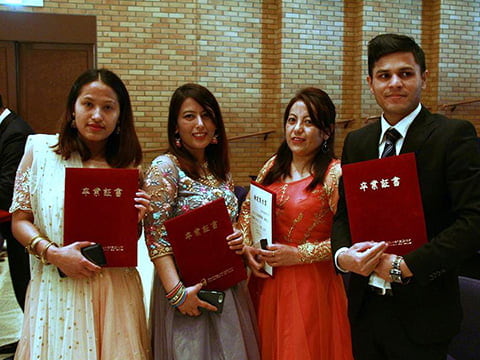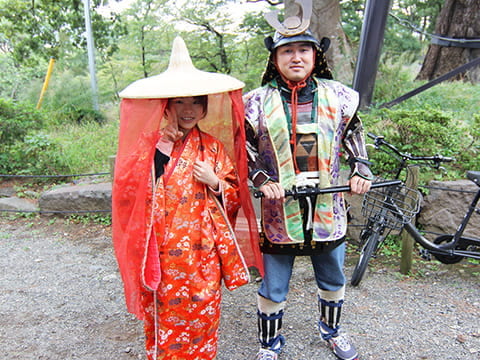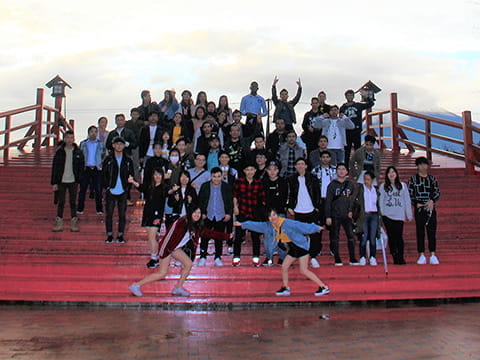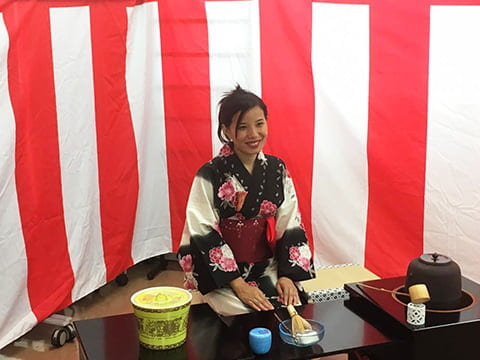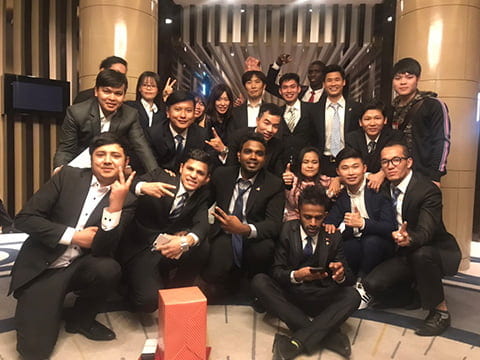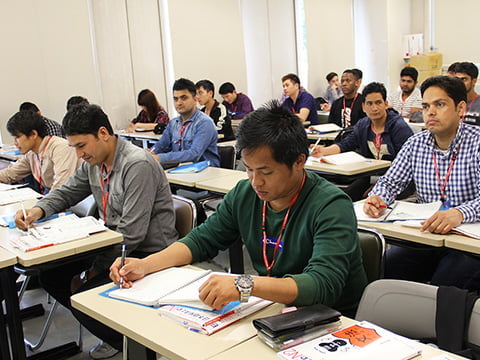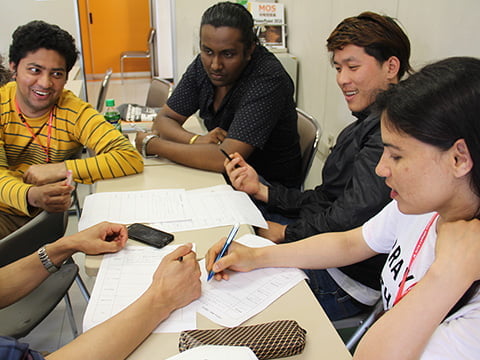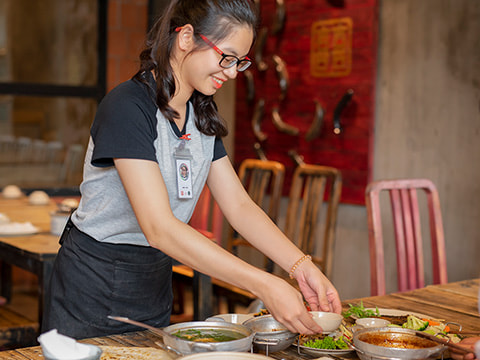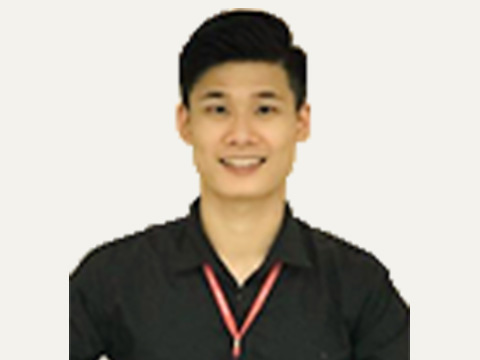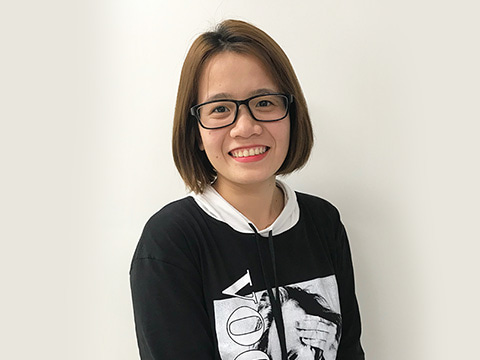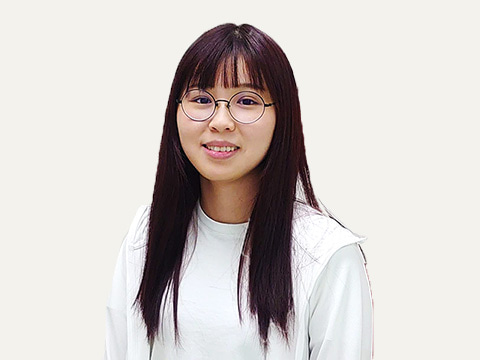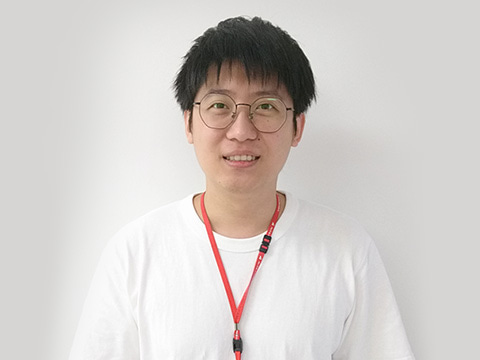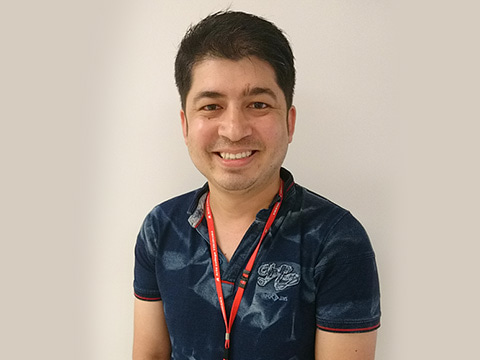Students from all over the world come to study in Japan after being exposed to Japanese animation, manga and games from a young age and becoming interested in Japanese history and culture. Arts College Yokohama is a higher-education institution (vocational school) that provides education from "learning Japanese" to "acquiring professional skills through Japanese". Here you can obtain the qualification of a professional (Diploma) and use the skills you have acquired to achieve "working in Japan".
The Three Features of the Japanese department at Arts College Yokohama
Accomplish your goal of "working in Japan"
The Japanese Language Department in "Vocational School"
Educational System Specifically aimed at employment in Japan
Arts College Yokohama is a school corporation with 8 specialized courses in 5 departments. After completing the specialized courses designated by the Japanese Ministry of Education, Culture, Sports, Science and Technology, students can obtain a diploma, which is important for employment in Japan. We support internal advancement after graduation from the Japanese language course to match the career that students want to pursue.
Vocational education starting from the first year
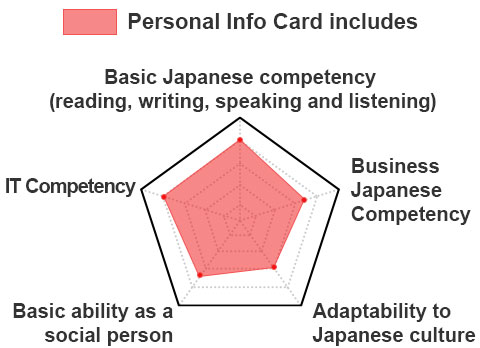
Even if the student's Japanese level is primary, (s)he can still learn Japanese culture,way of living, way of thinking and business etiquette. Through using practical Japanese in everyday communication, and passing Business Japanese Competency Exam Level 4, students can master all the necessary knowledge for "vocational education". Besides, students can apply what they learn to real life by working part time.
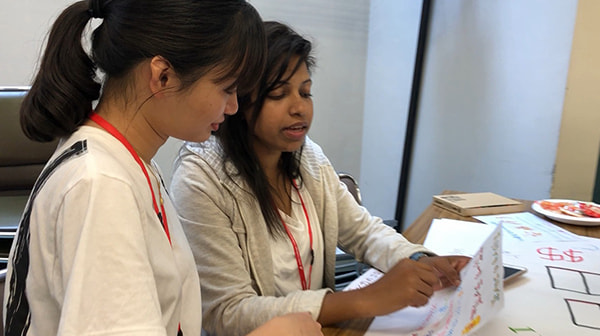
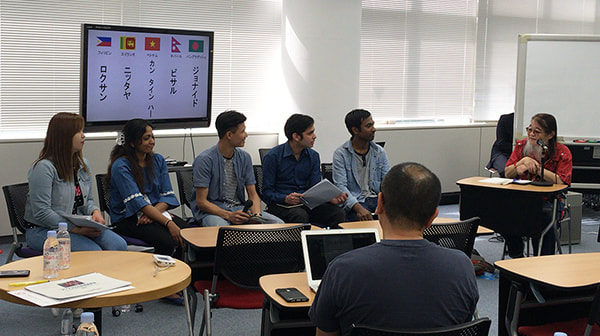
ICT Education to improve IT competency (e.g., Japanese input method, Basic operation of OS)
In class, we create a favorable learning environment for every student.Each student has a laptop and practices their Japanese through ICT. They first learn the Japanese input method and basic operations of computers. They can also use learning apps and study Japanese online in class. Students can also learn on their own in their spare time.
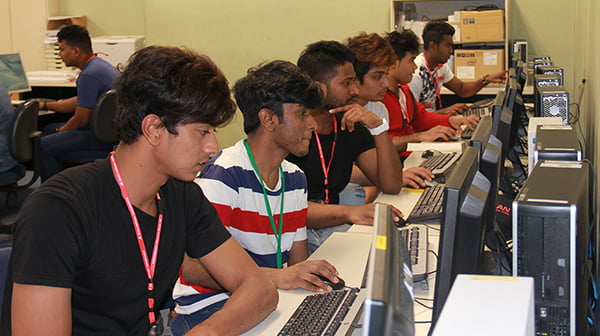
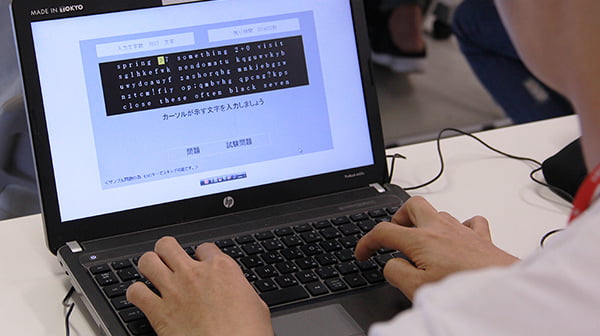
Special lecture only available at Arts College Yokohama
Effective Ways to Learn "Practical Japanese"
The learning methods at Arts College Yokohoma: "Demonstration-Training-Practice"
Effective ways to conduct demonstration, training and practice repeatedly so as to internalize knowledge and master "practical Japanese"
DemonstrationAccurately imagine and simulate Japanese articulation and usage

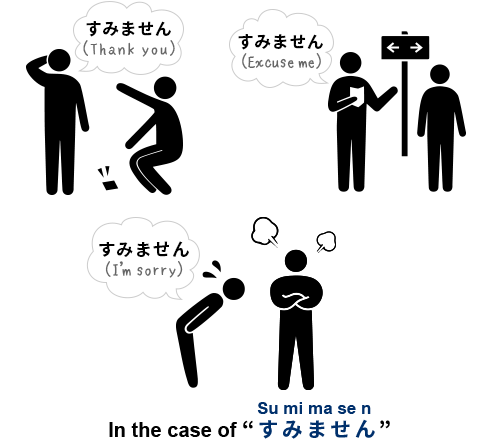
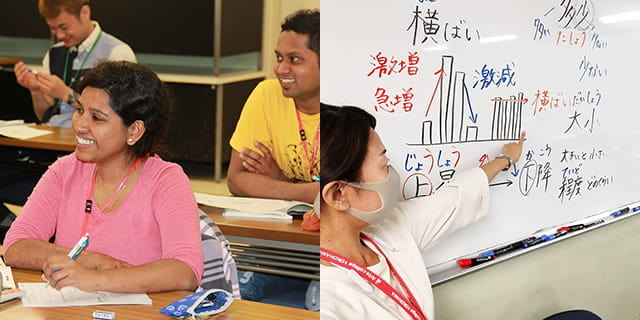
Students will accurately imagine and simulate scenarios about when, where and with whom to communicate, and learn language knowledge using "reading, writing, speaking and listening" skills comprehensively. At the same time, we utilize all kinds of supplementary materials such as videos and pictures to reproduce the scene and conduct live demonstrations to deepen students' comprehension of authentic communications among the Japanese natives.
TrainingCreate a natural context according to the situation


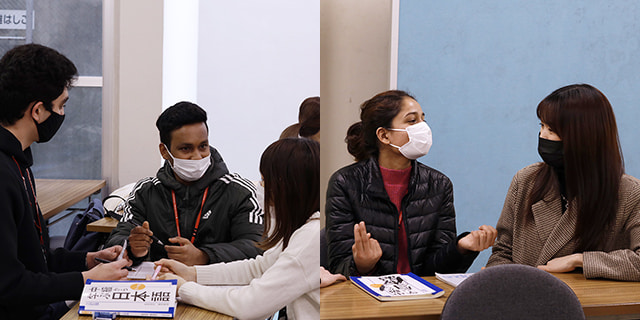
Students will repeatedly practice pronunciation, eye-contact and personal distance and pay attention to the language behaviors rooted in Japanese culture to master "practical Japanese". Afterwards, students will switch roles and make effort to train their communication and application skills, taking into consideration a natural context with a couple of elements.
PracticeCombine Practice with classroom Japanese learning

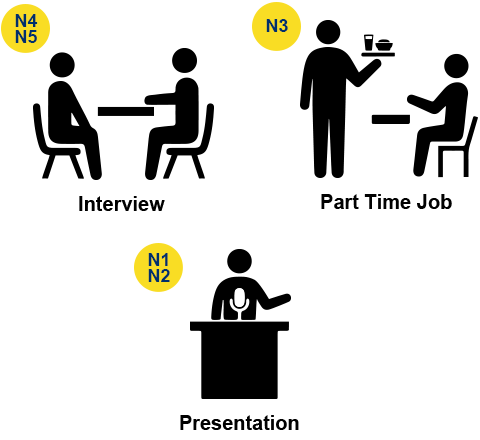
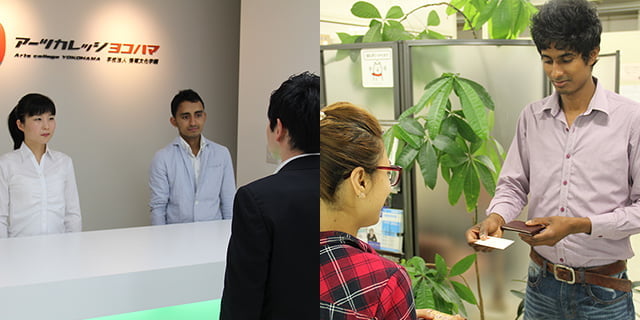
Students practice classroom knowledge during their daily lives, part-time jobs and school activities. Successful experience turns into "practical Japanese" whereas unsuccessful experience was brought back to school, corrected and practiced again.
Moreover, students are provided with lots of practice opportunities at different levels from primary to advanced.
| Japanese Primary Levels (N4 & N5) | Students are able to conduct part-time job interviews and communicate within local community. |
|---|---|
| Japanese Intermediate Level (N3) | Students are able to communicate with their native peers, receive guests,and participate in intramural speech competitions. |
| Japanese Advanced Level (N1 & N2) | Students are able to participate in intermural speech competitions, attend formal job interviews and interviews to further their education. |
Please go to
"Introduction of Professional Courses" for details.
Students effort ☓ personal capability improvement under teacher's guidance
Personal Produce


Our school has a unique "Personal Info Card" system, which enables teachers to understand each student's capability and create goals for each individual student to improve accordingly.
Starting from improving and balancing the four basic Japanese language skills of our students, the school also helps our students cultivate their "basic ability as a social person" and "adaptability to Japanese culture" that are much needed when working in Japan. To achieve the goal of getting a job in Japan, we also provide advice for part-time jobs and career counseling.
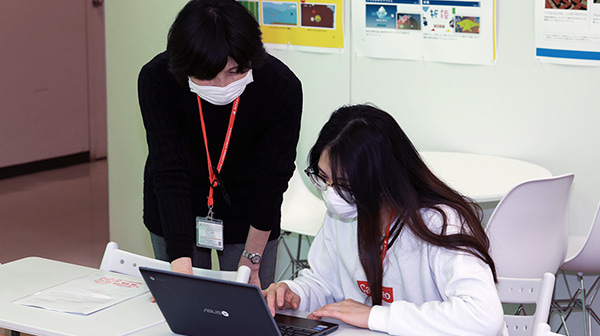
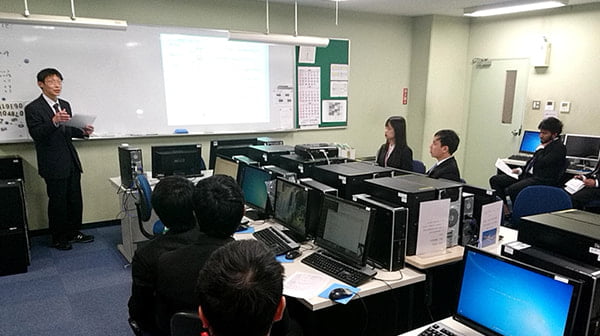
School Introduction
Our School is a legally incorporated educational institution with some history. We have Japanese native students who also study here.
As a legally incorporated educational institution, our school was founded in 1983. We made achievements in education and employment and gathered rich experience when providing vocational education to Japanese native students.Therefore, in 2012 we established courses for international students and offered business Japanese/adaptability to Japanese culture/professional skills and knowledge education. We have also provided guidance and support for students to get their "technology, humanities knowledge, international business" working visa to be able to work in Japan.
Our school has 8 specialized courses in 5 departments! There is an internal support system for further study after graduation from the Japanese language course.
The idea of "Opening up the future with technology" resonates with students from all over the world. Students work hard to learn professional knowledge so that they can work as an IT engineer or entrepreneur in their dream field in Japan.
International students can advance to a higher level of professional courses within the school once they graduate from the Japanese language learning in accordance with their actual ability.
| N4N5 | Japanese learning (2 years) |
|
 |

| N3 | International Business and Information Processing (2 years) |
|
 |
| N2 | Game Creator (3 years) |
|
 |
| N2 | Design (2 years) |
|
 |
| N2 | Information Processing (2 years) |
|
 |
Introduction of Professional Courses
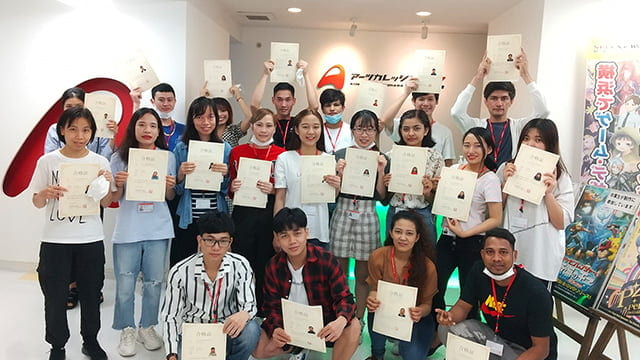
| Courses | 2 years |
|---|---|
| Capacity | 40 |
| Admission | April 2022 |
| Graduation | March 2024 |
About 1 month more class time per year
In our school, one single tutoring session lasts 50 minutes which means students in our school study for 67 more hours than any other schools (Is Approximately a month's learning hours)
* Compared to 45min/period, 800h/year.
- 800h, 4 semesters/year
- 5 days/week ( Mon - Fri)
- 4 periods/day, 50min/period
- Classes divided by competence-based class grouping
| AM | PM | |
|---|---|---|
| 8:50 - 9:40 | 1 | 13:15 - 14:05 |
| 9:45 - 10:35 | 2 | 14:10 - 15:00 |
| 10:45 - 11:35 | 3 | 15:10 - 16:00 |
| 11:40 - 12:30 | 4 | 16:05 - 16:55 |
Curriculum
The curriculum in our school is developed based on our years of experiences in Japanese education and vocational business education.Students start from the basics and accumulate their knowledge over the years so that they can not only pass Japanese language proficiency test but master business Japanese and adapt to Japanese culture.
| First semester, First year (Apr-Jun) |
Second semester, First year (Jul-Sep) |
Third semester, First year (Oct-Dec) |
Fourth semester, First year (Jan-Mar) |
First semester, Second year (Apr-Jun) |
Second semester, Second year (Jul-Sep) |
Third semester, Second year (Oct-Dec) |
Fourth semester, Second year (Jan-Mar) |
|
|---|---|---|---|---|---|---|---|---|
| Chinese characters |
150 | 300 | 450 | 600 | 750 | 900 | 1100 | 1300 |
| Vocabulary | 1500 | 1500 | 2500 | 2500 | 4000 | 4000 | 6000 | 6000 |
| JLPT | N4 | N4 | N3 | N3 | N2 | N2 | N2, N1 | N2, N1 |
| CEFR | A2 | A2 | B1 | B1 | B2 | B2 | C1 | C1 |
Experienced Lecturers
Experienced lecturers who have been working in various educational institutions employ pedagogies that are aligned with our school's learning methods in their daily teaching.
Learning methods at Arts College Yokohama: "Demonstration-Training-Practice"
Special Lectures and Activities
Students can attend special lectures and professional courses in games, design, and IT at Arts College Yokohama, which helps them decide their career path and employment.
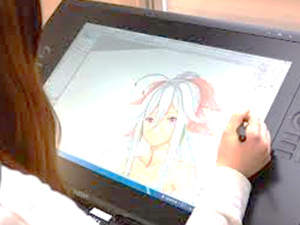 Design
Design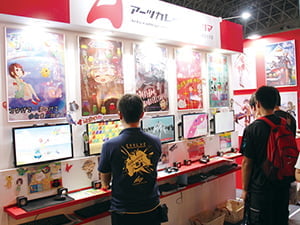 Game Exhibition
Game Exhibition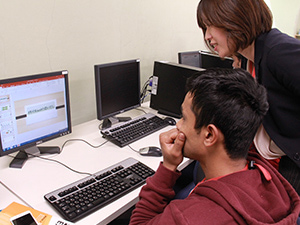 IT
IT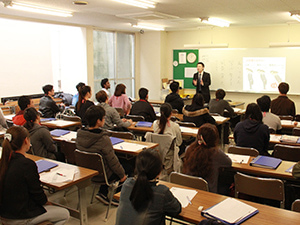 Business Japanese
Business Japanese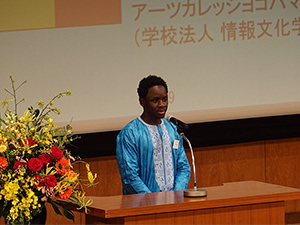 Speech Contest
Speech Contest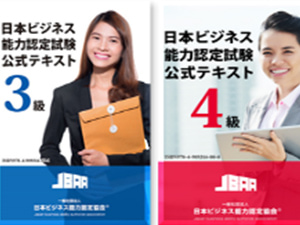 Japan Business Ability Qualification Exam
Japan Business Ability Qualification Exam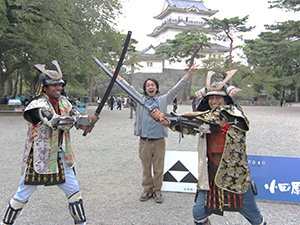 Visiting Scenic Spots
Visiting Scenic Spots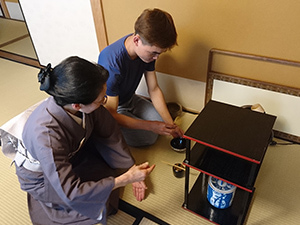 Japanese Tea Ceremony
Japanese Tea Ceremony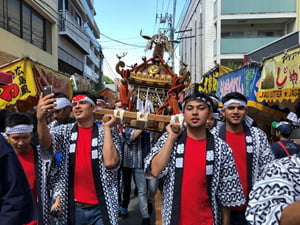 Socializing
Socializing
Support for Current Students
Personal Produce
Support for Career
Path to assist career development after 4 years
Based on "Personal info card", we provide career direction guidance that suits each individual student through regular one-on-one meetings. Students receive info about their advancement of vocational education either within our school or outside our school,test preparation strategies, and employment in accordance with their own professional goals. Thus, students can have peace of mind while they study here to plan for their future.
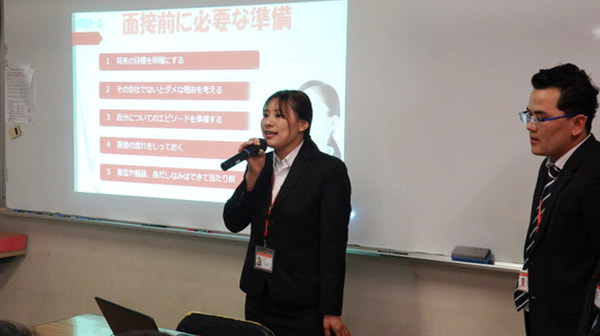
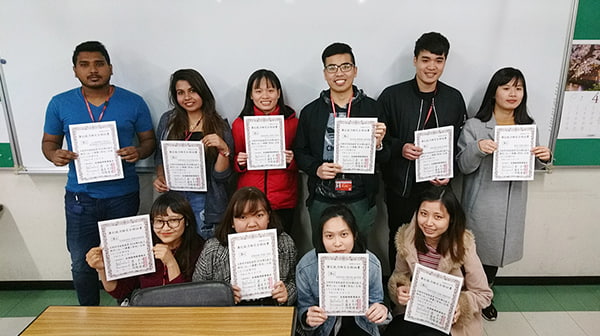
Student Housing
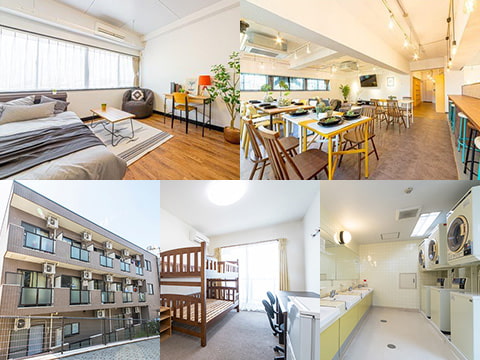
Arts College Yokohama provides information on accommodation facilities that are provided by our partners. These accommodation facilities are within the commuting range of the school.
Please consult our school for application details.
[ OAKHOUSE CO., LTD. ]
When living in a shared house/apartment, you can communicate with other occupants.
[ SUMITOMO FORESTRY RESIDENTIAL CO., LTD. ]
There are permanent administrators in the residence for international students, so you can start your study abroad with peace of mind.
Part-time job information
Business cooperation between our school and Chikyujin Foundation
Students of the Japanese language department join CHIKYUJIN CLUB while coming to Japan.Once they become a member of CHIKYUJIN CLUB, besides receiving support when entering the country, they will also receive information about part-time jobs, training before part-time jobs, scheduling and working time management, and the most suitable occupation information based on their Japanese proficiency.
Support for visa acquisition and renewal
Students are required to obtain a Certificate of Eligibility for Resident Eligibility when getting a student visa.
- Application to the Tokyo Immigration Bureau for the Certificate of Eligibility (Late November)
- Issuance of the Certificate of Eligibility (Late February)
- Application for a student visa in exchange of the Certificate of Eligibility at a Japanese embassy or consulate in your country (March)
- Issuance of a student visa and coming to Japan (early April)
Since the Japanese Language Department of Arts College Yokohama is new, the period of stay allowed for the student visa is 6 months. Therefore, it is necessary to renew the status of residence every 6 months. When the status of residence is renewed, the staff of our school shall apply to the Tokyo Immigration and Residency Bureau. Students do not need to go through the procedures at the Tokyo Immigration and Residency Bureau by themselves. In addition, the handling fee (4000 yen) required for the renewal is borne by the school.
Scholarship
There is a scholarship system for students who study hard and have excellent grades.
- Students who have Excellent attendance rate and grades in each semester. One person from one class is selected to receive a scholarship of 10,000 yen (one-year quarter system, one class in the morning and one in the afternoon)
- Students who have passed the Japanese Language Proficiency Test (twice a year)
- The top 5 students who pass N2 will receive a scholarship of 10,000 yen.
- The top one (first place) of N1 passers will receive a scholarship of 20,000 yen.
Life Studying Abroad
International city YOKOHAMA
Yokohama (YOKOHAMA) is a tourist destination in Kanagawa Prefecture, the largest city in Japan with a population of more than 3.7 million. It boasts landmark buildings with an observatory, art galleries, shopping spots and food spots. With the sea and the port, it is a charming city full of exotic flavors.
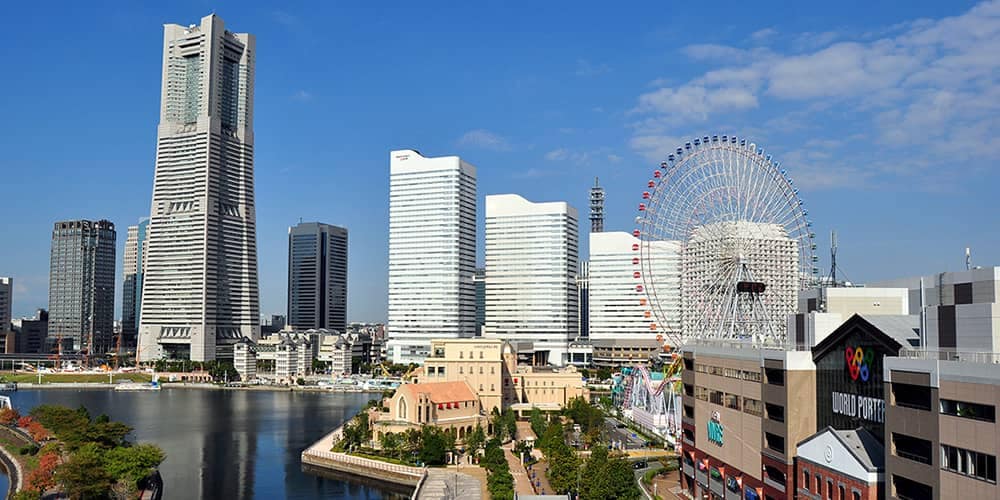
A day in the life of a student
| 7:30 |
|
|---|---|
| 8:50 |
|
| 12:30 |
|
| Lunch |
|
| 17:00 |
|
| 22:00 |
|
| 24:00 |
|
Interviews with current students and graduates
School Guide
Course
| Department | Course | Capacity | Starting time | Study Period |
|---|---|---|---|---|
| Japanese Learning | 2 year Preparatory Course | 40 | April | 2 years |
Tuition Fees
| Admission Fee | Tuition Fee | Facility Fee | Material Fee | Total | |
|---|---|---|---|---|---|
| 1st Year | 100,000 JPY | 530,000 JPY | 60,000 JPY | 60,000 JPY | 750,000 JPY |
| 2nd Year | - | 530,000 JPY | 60,000 JPY | 60,000 JPY | 650,000 JPY |
Download
- School Guide
2025 - Admission
2025 - Application form
Getting Ready
Address
There are direct trams and buses between the airport and Yokohama.
Transportation is convenient with no need to transit.

Arts college YOKOHAMA
2-105-8, Sengencho, Nishi-ku, Yokohama, Kanagawa, Japan, 220-0072
- It takes 15 minutes from Sotetsu line Yokohama station to school on foot.

